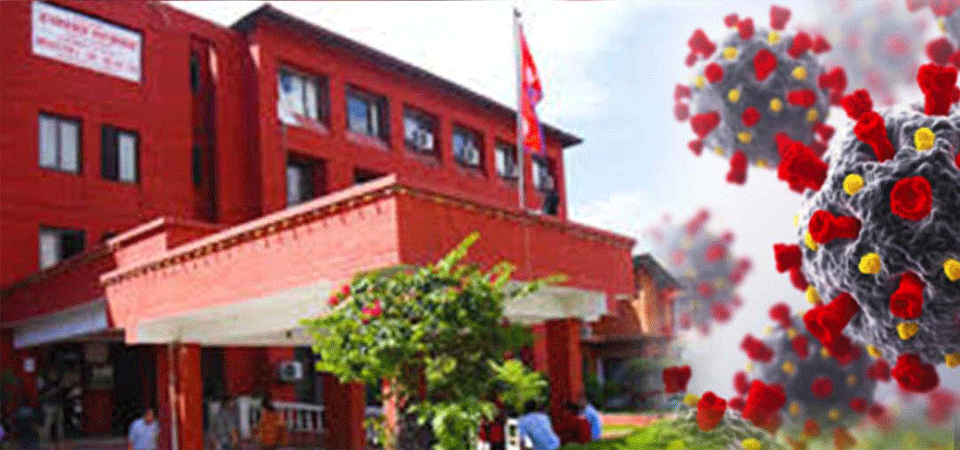MoHP recommends closing Valley schools

By A Staff Reporter
Kathmandu, Apr. 14: The Ministry of Health and Population (MoHP) has recommended closing schools for at least one month in big cities, including the Kathmandu Valley, to contain the spread of COVID-19.
Talking with journalists at his office on Tuesday, Health and Population Minister Hridayesh Tripathi recommended virtual class as an alternative to physical class. Minister Tripathi said that the new variant of coronavirus had been found among youth and children alike.
According to the latest data made available by the ministry, the infection rate among youths aged below 21 years has doubled this year compared with the past year.
As there is no vaccine for children aged below 18 years, there is no option but to suspend physical classes in schools and colleges in an effort to stop the virus transmission, added Tripathi.
“Suspending physical classes in schools and colleges for a month means that nearly 800,000 children would stay out of school in the Kathmandu Valley alone. This will help subdue the wave of COVID-19 infection. Besides, it also reduces the movement of people by 20 per cent,” said Tripathi.
On the occasion, he said that Nepal could witness a daily rise of more than 11,000 cases and the national COVID-19 tally could surpass the 600,000 mark by the next three months. “The projection of the ministry is based on the current trend of the COVID-19 infection in the country,” he added.
“The ministry is taking precautionary measures to face the forthcoming challenges,” he concluded.
Second dose of vaccines from Apr 19
The government has announced to administer the second dose of COVID-19 vaccines from April 19 to 22 to those who had received the first dose from January 28 to February 22. Issuing a public notice, the MoHP has urged all those eligible to visit their nearest vaccine centers to receive the second dose.
The government had administered the first dose to various frontline workers, including health professionals, security personnel, government employees, journalists, officials of diplomatic missions, embassies and those working with the United Nations.
People aged 60 years or above and parliamentarians were also among those receiving the first dose.
Recent News

Do not make expressions casting dout on election: EC
14 Apr, 2022
CM Bhatta says may New Year 2079 BS inspire positive thinking
14 Apr, 2022
Three new cases, 44 recoveries in 24 hours
14 Apr, 2022
689 climbers of 84 teams so far acquire permits for climbing various peaks this spring season
14 Apr, 2022
How the rising cost of living crisis is impacting Nepal
14 Apr, 2022
US military confirms an interstellar meteor collided with Earth
14 Apr, 2022
Valneva Covid vaccine approved for use in UK
14 Apr, 2022
Chair Prachanda highlights need of unity among Maoist, Communist forces
14 Apr, 2022
Ranbir Kapoor and Alia Bhatt: Bollywood toasts star couple on wedding
14 Apr, 2022
President Bhandari confers decorations (Photo Feature)
14 Apr, 2022










